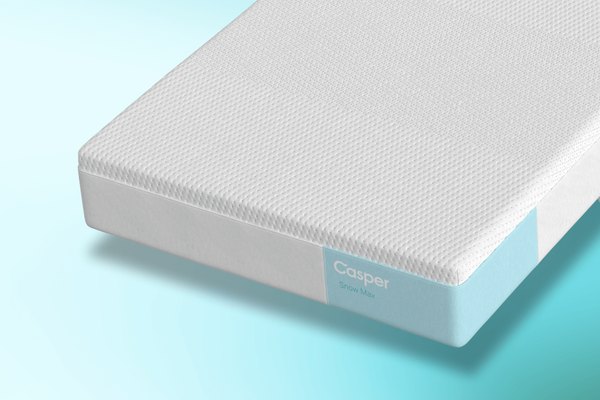
Frequently Asked Questions
1. Why is sleep important for mental health?
2. What are the signs of poor sleep quality?
3. What strategies can I use to improve my sleep quality?
4. How does diet affect sleep quality?
5. When should I seek professional help for sleep issues?
Sleep is often underestimated in its importance to our overall health and well-being, yet it plays a crucial role in maintaining mental health. The quality of sleep we get does not just affect our physical state but also has a profound impact on our emotional and psychological states. When you consider the increasing rates of anxiety, depression, and other mental health disorders, it becomes evident that understanding the link between sleep and mental health is more crucial than ever. In this article, we explore the vital connection between sleep and mental health, why quality sleep matters, and strategies for improving your sleep quality.
Understanding Sleep and Mental Health
Before we delve into the details, it's essential to understand what sleep is and its stages. Sleep is a natural, reversible state of reduced responsiveness to external stimuli and inactivity of the voluntary muscles. It is divided into different stages, including Rapid Eye Movement (REM) and non-REM sleep, each contributing uniquely to our physical and mental health.
The Sleep-Mental Health Connection
Numerous research studies have shown that poor sleep can lead to various mental health challenges. Understanding this connection can help us make informed decisions to enhance our sleep hygiene, ultimately improving our mental health. Here’s how sleep impacts mental health:
- Regulates Mood: Quality sleep helps in maintaining emotional balance. Lack of sleep can lead to irritability, mood swings, and increased susceptibility to stress.
- Affects Cognitive Function: Sleep is essential for cognitive processes, including memory consolidation, learning, and critical thinking. Insufficient sleep impairs these functions, often leading to anxiety and depression.
- Impact on Stress Levels: Adequate sleep reduces the levels of stress hormones like cortisol, promoting better stress management and emotional resilience.
- Higher Risk of Mental Disorders: Chronic sleep deprivation has been linked to a higher risk of developing mental disorders, including anxiety and depression.
The Science Behind Sleep Quality
Quality of sleep refers not just to the duration of sleep but also to how restorative it is. Factors that contribute to sleep quality include uninterrupted sleep, duration of REM sleep, and how refreshed you feel upon waking up.
Impact of Sleep Quality on Mental Health
High-quality sleep goes beyond simply snoozing through the night; it significantly impacts how our systems function. Here's a deeper look at how sleep quality directly affects mental health:
- Neurotransmitter Regulation: Sleep plays a crucial role in regulating neurotransmitters that are critical for mood stabilization, such as serotonin and dopamine. Poor sleep disrupts these levels, contributing to mood-related disorders.
- Emotional Processing: Sleep enables the brain to process emotions and experiences. Without sufficient quality sleep, the ability to cope with emotional situations diminishes, increasing the risk of anxiety and depression.
- Sleep Disorders: Conditions such as insomnia or sleep apnea further impair mental health by causing chronic fatigue and increased irritability, exacerbating existing mental health conditions.
Signs of Poor Sleep Quality
Recognizing the signs of poor sleep quality can help you take action before these issues negatively affect your mental health. Here are some common indicators:
- Frequent awakenings during the night.
- Struggling to fall asleep or stay asleep.
- Feeling groggy or unrested upon waking.
- Daytime fatigue or sleepiness.
- Irritability and mood swings.
Strategies to Enhance Sleep Quality
Improving your sleep quality involves a combination of habits, environment, and mindset. Here are actionable strategies you can incorporate into your routine:
Create a Sleep-Inducing Environment
The environment in which you sleep plays a significant role in the quality of your sleep. Consider these tips:
- Temperature: Keep your bedroom cool (around 60-67°F is optimal) to promote deeper sleep.
- Darkness: Use blackout curtains or sleep masks to reduce light exposure, which can disrupt your circadian rhythm.
- Noise Control: Consider earplugs or white noise machines to block out disruptive sounds.
Establish a Regular Sleep Schedule
Going to bed and waking up at the same time every day helps regulate your body's internal clock, promoting better sleep quality. Aim for 7-9 hours of sleep each night. Keeping consistent times allows your body to know when it is time to wind down and rejuvenate.
Mind Your Diet
What you eat and drink can significantly affect your sleep quality. Consider these dietary practices:
- Avoid Caffeine: Limit caffeine consumption, especially in the afternoons and evenings.
- Limit Alcohol: While alcohol may initially make you drowsy, it can disrupt your sleep later in the night.
- Nutritious Evening Snacks: Opt for light snacks that promote sleep, such as bananas or yogurt.
Adopt a Wind-Down Routine
Engaging in a calming pre-sleep routine can signal to your body that it's time to relax. Simple activities you can consider include:
- Reading a book.
- Practicing meditation or deep-breathing exercises.
- Taking a warm bath.
- Limiting screen time (phones, TVs, and computers) at least an hour before bed.
The Ripple Effect: Healthy Sleep, Healthy Mind
Emphasizing the importance of sleep does not only improve mental health but also enhances your daily productivity, mood, and overall well-being. As sleep improves, you may notice an increase in energy levels, better focus, and an enhanced ability to manage daily stressors. Prioritizing your sleep creates a ripple effect, influencing various aspects of your life, including physical health, relationships, and work performance.
Overcoming Sleep Barriers
Recognizing and addressing barriers to good sleep is crucial for enhancing sleep quality. If stress, anxiety, or other mental health challenges are hindering your ability to sleep, consider seeking professional guidance. Cognitive-behavioral therapy for insomnia (CBT-I) is one effective approach to break the cycle of poor sleep quality and mental distress.
When to Seek Help
It’s essential to know when to seek help for sleep issues. If you've tried improving your sleep habits but still face persistent issues or if you suspect that sleep disorders are affecting your mental health, reaching out to a healthcare professional is highly recommended. They can provide valuable insights and recommendations, allowing you to reclaim restful, restorative sleep.
Make Sleep a Priority
Ultimately, improving your sleep should be seen as an investment in mental well-being. By understanding the crucial connection between sleep and mental health and implementing effective strategies to enhance sleep quality, you're not just promoting better rest—you’re opening the door to a happier, healthier, and more productive life. Making sleep a priority can revolutionize your mental health, making your days brighter and more fulfilling.









